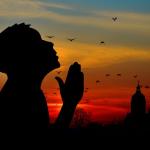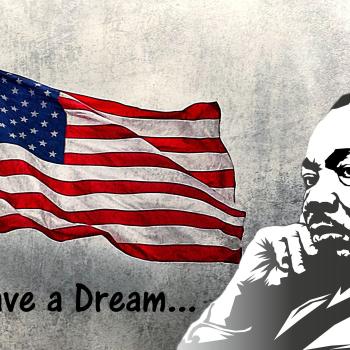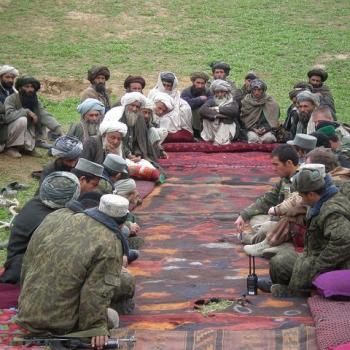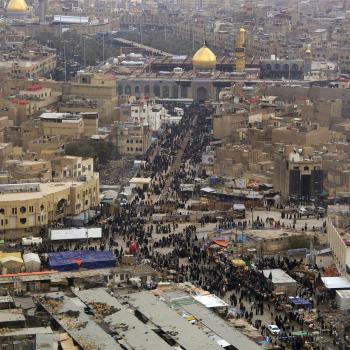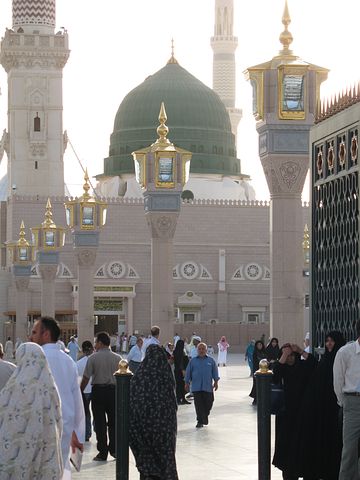 Last month I wrote an article on What Would Jesus Do- 7 Things From A Muslim’s Perspective. Have Muslims pondered on ‘what would Muhammad PBUH do’, even though Muslims don’t believe in his return? We often use his example and the way he lived, and rightly so, when trying to figure how to act in today’s world. However we tend to get stuck on how he acted in the 6th and 7th century Arabia, rather than how he would have acted if he were living today’s world.
Last month I wrote an article on What Would Jesus Do- 7 Things From A Muslim’s Perspective. Have Muslims pondered on ‘what would Muhammad PBUH do’, even though Muslims don’t believe in his return? We often use his example and the way he lived, and rightly so, when trying to figure how to act in today’s world. However we tend to get stuck on how he acted in the 6th and 7th century Arabia, rather than how he would have acted if he were living today’s world.
(PS: PBUH=Peace be Upon him. Muslims use this to pay their respect for Prophet Muhammad and other prophets)
I don’t have a list of 7 things he would do, like I did for the prior article on jesus PBUH. Instead I would like to draw your attention to his genius, his wisdom and character in bringing about a social revolution in a span of 23 years, and what we can learn from that to apply ourselves to the 21st century issues. And if you thought we have different set of issues- think again.
Prophet Muhammad grew up in a tribal society. The 6th century Arabia was deeply divided into tribes and clans. You were respected (or not) depending on which tribe you belonged to. Your social status and position depended on it. Slaves and women were not treated like 2nd class citizens- that would have been an upgrade. They had practically no status. Daughters were buried alive because they brought ‘shame’ to them. If you were poor, you were practically nothing.
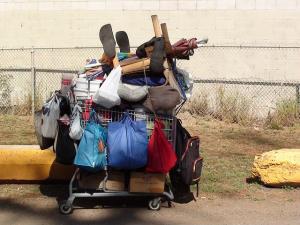 We tend to focus on the religious and theological aspects of his message, which remains a very important part of his message. But we tend to forget the impact on social norms he brought about. His call to Islam, and the islamic way of life, was a significant threat to the elites of Mecca. Here is a man calling for the equal rights of the marginalized- the poor, the slaves, the women and others. He gave voice to the voiceless. No wonder among the first to change course after his call were the social discards. The elites were naturally the ones who were staunchly opposed to him as they saw their powers beginning to erode as the popularity to his simple message started to grow. The story of Bilal, the African slaves, is well-known to the Muslims. He converted to Islam but was dragged down on the hot desert sand, asking to denounce his new-found religion. But he was steadfast. He was seen as an equal (in fact held a high status among the converts, and later had the honor of being the first Muazzan in Islam- the one to to do the call to prayers or Adhan).The Meccan elites then went out to order a social and economic boycott of the clan of Prophet Muhammad (Banu Hashim). It did not serve their purpose. If anything, it strengthened the resolve of the budding community.
We tend to focus on the religious and theological aspects of his message, which remains a very important part of his message. But we tend to forget the impact on social norms he brought about. His call to Islam, and the islamic way of life, was a significant threat to the elites of Mecca. Here is a man calling for the equal rights of the marginalized- the poor, the slaves, the women and others. He gave voice to the voiceless. No wonder among the first to change course after his call were the social discards. The elites were naturally the ones who were staunchly opposed to him as they saw their powers beginning to erode as the popularity to his simple message started to grow. The story of Bilal, the African slaves, is well-known to the Muslims. He converted to Islam but was dragged down on the hot desert sand, asking to denounce his new-found religion. But he was steadfast. He was seen as an equal (in fact held a high status among the converts, and later had the honor of being the first Muazzan in Islam- the one to to do the call to prayers or Adhan).The Meccan elites then went out to order a social and economic boycott of the clan of Prophet Muhammad (Banu Hashim). It did not serve their purpose. If anything, it strengthened the resolve of the budding community.
In many ways, the life stories of Prophets Muhammad and Jesus are very similar- they stood up for the marginalized, they stood up against the elites/oppressors of the time and brought about a social revolution that has impacted billions of people since.
But the fact is that Prophet Muhammad did not abolish the tribal system. He rather carefully navigated the tribal culture to ensure that he instilled the values as taught by the Qur’an. He maintained a delicate balance between their heritage and tribal norms, and at the same time abolishing the culture of discrimination and poor treatment of the marginalized, replacing it with a culture of brotherhood, equality and kindness. As long as the system did not violate the basic Islamic tenants, he allowed them to maintain their identity.
Fast forward that to the 21st century and we see some of the same issues today. No, we don’t have the clans of the 7th century Arabia, but we do have their 21st century versions. We are divided based on our socio-economic status, immigration status, national origin, color of skin and ethnicity, political party affiliation as well based on our sects.Groups such as ‘Black Lives Matter’ exist because there is still tremendous amount of social injustice and discrimination. We still march for women’s rights as the women are still struggling to find equal rights. The occupy movement may have died but the “99%” are still fighting against the “1%”. Sure they are not called the Meccan elites but their roles are very similar.
The question we have to ask is: Are we somehow behaving like the Meccan elites or acting in accordance with the teachings and the Sunnah(way) of Prophet Muhammad? Are we on the side of the poor and the marginalized of our time? If we are fortunate enough not to be among the marginalized communities ourselves, then what have we done to help them? Have we raised awareness to their plight?-The plight of the immigrants, the poor, the needy, the hungry, the homeless and the oppressed. Do we discriminate, or have an implicit bias against the blacks, the women, the immigrants, the poor, and the homeless ourselves?
When it comes to fighting for social justice, I don’t think Prophet Muhammad will do anything differently than what he did 1400 years ago. The question is, will we ?

